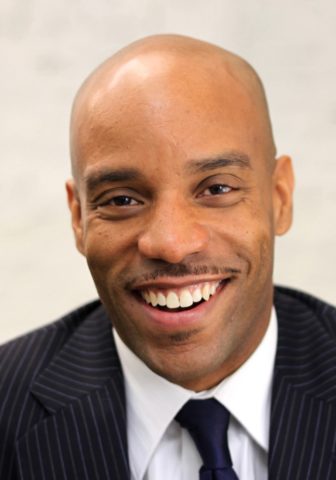 Two 15-year-olds, Ryan and Michael, are both arrested for simple assault. While Michael is ordered to complete a diversion program, Ryan is to be locked up for six months in a juvenile facility. Why the difference in punishments? They live in different counties in Michigan.
Two 15-year-olds, Ryan and Michael, are both arrested for simple assault. While Michael is ordered to complete a diversion program, Ryan is to be locked up for six months in a juvenile facility. Why the difference in punishments? They live in different counties in Michigan.
Every youth, from Detroit to Marquette, deserves the same chance to overcome the mistakes of youth and reach his or her full potential. Simply put, that’s not happening today. Stakeholders have been talking for years about reforms needed that address geographical and racial disparities and that emphasize rehabilitation rather than punishment. Despite broad bipartisan support, the reforms have stalled.
Michigan’s current juvenile justice system is decentralized and inconsistent. Each county has its own complex system of jails, local courts, budgets and private providers. The entire system needs to be reformed so that it provides fair and equitable outcomes for all youth. For this to happen, all counties in Michigan need the tools to provide appropriate treatments that address the complex needs of youth in the system.
Research into brain development shows that a youth’s ability to reason and exercise sound judgment continues to improve well into their mid-20s. Since minors are likely to outgrow impulsive behavior, diversion programs and community treatment options better serve them. But currently counties in Michigan are not consistent on how and whether they use evidence-based diversion programs, treatment services and assessment tools.
Michigan's current approach is also expensive. Michigan is one of just five states that treat 17-year-olds as adults if they are charged with a crime. On average, locking youth in adult prisons costs taxpayers $34,000 a year per prisoner. Worse still, youth who serve time in prison are more likely to reoffend after being released back into their communities and are more likely to commit a violent offense than their peers in the juvenile justice system. The policy of adjudicating 17-year-olds as adults is at odds with the research that shows youth are better served by rehabilitative and positive youth development practices.
In spring 2016, the Michigan House of Representatives passed a Youth in Prison Legislative Package to address problems facing the system. The package passed with overwhelming bipartisan support, but died in the Senate.
Stakeholders are currently renewing discussions to bring about change in Michigan’s juvenile justice system. It is important for this talk to turn into action. Going forward, policymakers should consider these guiding principles to achieve statewide improvements:
- Every young person deserves fair and effective support to become a productive, law-abiding adult.
- A child’s development and well-being greatly impact future success.
- Systems should be designed to meet the developmental characteristics unique to youth.
- Policies and practices should effectively identify and address disparities among vulnerable youth and marginalized communities.
- Public safety is improved when young people are given the opportunity to thrive.
- A child-serving system should use data and research to inform best practices and wisely invest.
Some local juvenile justice systems have taken the initiative to make improvements by investing in evidence-based assessments. Others are establishing diversion programs, school partnerships and effective community-based alternatives to detention and incarceration. But statewide reform is incomplete until this work is taken to scale and all 83 counties have the access, knowledge and resources to address the needs of justice-involved youth.
Paul Elam, Ph.D., is the president of Public Policy Associates, Inc. and has worked on national, state and local efforts to create fair and effective juvenile justice policies and practices. He is a board member of the Michigan Council on Crime and Delinquency and a consultant to the Michigan Committee on Juvenile Justice.
One local Michigan system invested in an evidence-based program for juveniles who commit sex offenses. You can read about her decision here: http://info.mstservices.com/blog/mst-and-mst-psb-was-choice-of-michigan-judge-to-rehabilitate-juveniles